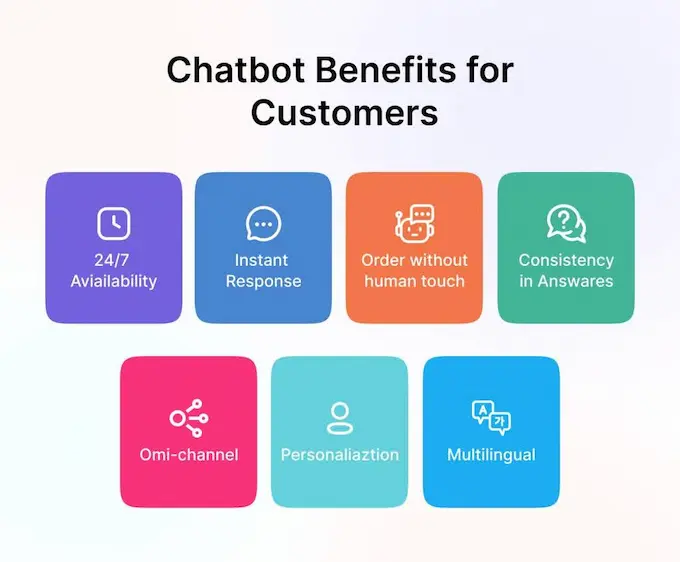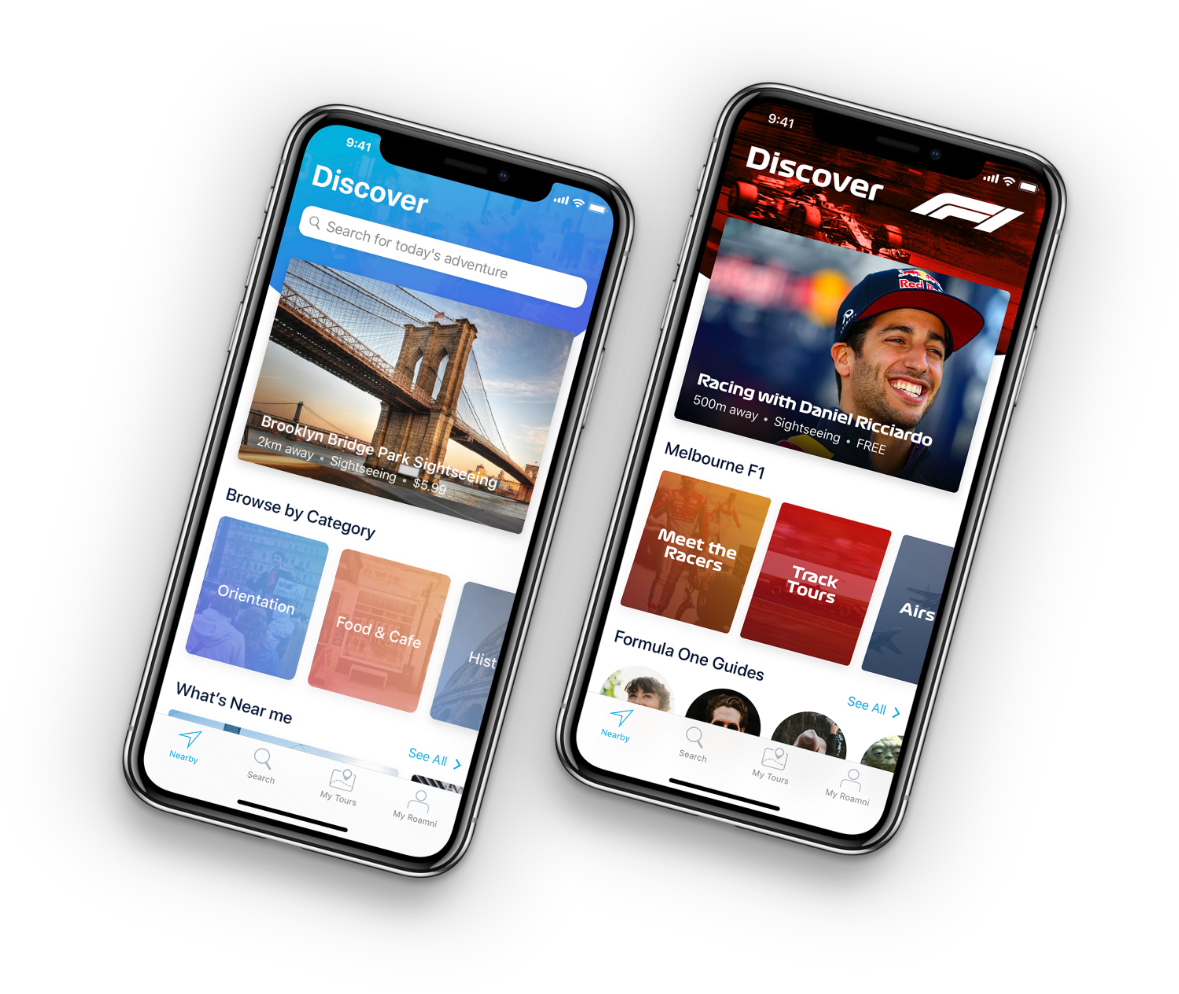Why Chatbots Are Key to Enhancing Customer Loyalty

Editor’s note: This article is written by a Guest Author
Chatbots have become essential for building customer loyalty with instant gratification driving consumer expectations.
AI-powered chatbots are designed to understand and respond to customer queries naturally and conversationally. This explains why 74% of internet users prefer interacting with them when looking for answers to simple questions.
These chatbots can handle all queries, from basic inquiries to complex issues, offering efficient customer support. As a result, they enhance customer experience and boost loyalty.
In this article, we will explore chatbots’ impact on customer loyalty. Find out how these bots can transform user experiences and foster customer loyalty and retention, whether you are running a SaaS-based business, a restaurant, or a retail store.
Contents
- What is customer loyalty?
- What are the types of loyal customers?
- What are the effects of chatbots on customer loyalty on your business?
- What are the challenges of using chatbots?
But first, let’s talk about building customer loyalty.
What is customer loyalty?
Customer loyalty refers to a customer’s commitment to repeatedly purchase from or engage with a specific brand or business over time—even if other choices exist. Often, these customers make high-value, repeat purchases.
Numerous studies have confirmed that keeping existing customers is cheaper than acquiring new ones. A simple 5% rise in customer retention may increase a brand’s profits by approximately 95% in the long run.
Knowing the types of loyal customers will also give you an idea of how to integrate chatbots into your business operations and ensure you implement best practices for personalization in your messaging.
What are the types of loyal customers?
There are six distinct loyalty categories that loyal customers can be grouped into:
- Happy customer. Happy customers enjoy a brand’s products or services, have never complained, and have made numerous purchases. However, they can be easily swayed by competitors offering better deals or discounts.
- Price-loyal. Price-loyal customers stick with a brand primarily because of its low prices. If they find a better deal elsewhere, they are likely to switch. To retain these customers, brands must continually offer competitive pricing.
- Loyalty program-loyal. These customers are loyal to the brand’s loyalty program rather than the brand itself. They are attracted by the rewards and benefits offered by the program and may switch to another brand if a better loyalty program is available.
- Convenience-loyal. Convenience-loyal customers value the ease of communication, accessibility, and purchasing process with a brand. They are less influenced by price and more by the convenience the brand offers.
- Loyal to freebies. Customers loyal to freebies are drawn to the additional perks a brand offers, such as free samples or promotional items. They may not contribute significantly to revenue as their purchases are sporadic.
- Truly loyal. Truly loyal customers are brand advocates who repeatedly purchase from the brand, share their positive experiences, and refer friends and family. They are deeply connected to the brand and its values.
The goal is to capture first the happy customers until they become truly loyal customers and brand ambassadors.
That’s where chatbots come into the scene, which brings you to the next section.
What are the effects of chatbots on customer loyalty on your business?
Chatbots integrated into your business and communication channels increase responsiveness and convenience in customer interactions. By leveraging their automation capabilities, they offer instant access to information and ensure that your customers receive timely support whenever they need it.
Here’s a quick overview of benefits of chatbots for your customers.

Source: Beyondchats
Moving on, let’s deep dive into the effects of chatbots for your business below.
1. Enhanced availability and responsiveness
Customers want swift and efficient service, even during peak business hours. Unlike human support representatives, who have limited availability during defined shifts, chatbots can easily handle interactions at all times and on all platforms.
This increased accessibility, even outside regular business hours and holidays, improves customer satisfaction and strengthens their trust in your company.
With generative AI chatbots, the customer experience is further improved. AI chatbots are highly responsive and capable of engaging in conversations with customers, making your support channels more versatile even when your team is unavailable. This enhanced responsiveness helps retain customers by ensuring they always receive timely and effective support.
Some advanced chatbot platforms now integrate an AI voice generator with synthesis technology, enabling audio-based interactions for users who prefer listening over reading.
2. Highly personalized customer engagement
A Zendesk study found that 70% of CX leaders claim that chatbots can deliver highly personalized customer experiences.
These AI chatbots can track every customer’s previous interactions, giving you an in-depth understanding of their interests, preferences, and pain points.
In case you think this is wrong, it’s worth pointing out that 59% of customers who engage with a chatbot anticipate their information being utilized to customize future interactions.
Chatbots leverage customer insights to tailor their responses and offer personalized experiences. Many chatbots also use AI voice generator technology to respond to customer queries in natural-sounding human language. Such bespoke experiences not only foster a sense of trust but cultivate customer loyalty.
Here are some ways chatbots can deliver personalized responses to boost customer engagement:
- Adapting its messaging so it matches every customer’s journey
- Recommending products/services relevant to the customers’ needs and preferences
- Generating dynamic content based on customer interactions
- Maintaining context within each conversation for better responses
3. Minimized expenses and increased response efficiency
Every business strives to minimize expenses and maximize value. According to statistics, chatbots save companies 30% in customer support costs.
Although implementing chatbots requires an upfront investment, it pays off with long-term savings.
Chatbots can manage routine customer interactions, deflect tickets and intelligently route complex queries to the right human support staff. This can help your business serve more customers without dramatically expanding your team’s headcount.
4. Data collection and insights
Chatbots gather data about customers from previous interactions. They also collect information from other channels by analyzing browsing history, tracking previous in-app purchases, and monitoring user interactions and preferences. All this information can be used to measure customer loyalty and enhance a customer’s journey.
Vineet Gupta, founder of 2xSaS, said, “Chatbots serve as more than customer interaction tools; they also serve as effective data collectors, offering useful insights to assist businesses in making well-informed decisions and adjusting strategies for increased success.”
Chatbots can provide valuable insights by:
- Identifying specific patterns in customer sentiments and helping businesses make meaningful adjustments to their products and services.
- Closely evaluating support tickets to flag the most common and frequently reported issues. This can help businesses address these issues or create corresponding self-service tools or help material.
- Analyzing customer data in customer relationship management (CRM) tools to offer more effective marketing strategies and identify valuable upsell and cross-sell opportunities.
5. Customer satisfaction and customer retention
Statistics reveal that 67% of customers tend to stay longer and spend more money when they get a good customer experience.
Chatbots can initiate customer interactions and offer helpful assistance even before the customer realizes they need it. Satisfied customers are more likely to remain loyal and become brand ambassadors, promoting the brand through various platforms.
Having such a proactive approach to customer service can massively boost customer satisfaction by anticipating needs, offering meaningful help, or alerting customers to potential issues much before they escalate.
With the positive effects that chatbots bring to the table, we also have to consider the challenges to help you set boundaries as to where and how you would use them in the business. We’ll focus on these in the next part.
What are the challenges of using chatbots?
While chatbots bring a handful of benefits, the challenges and limitations can’t be overlooked. Here are some of them
1. Constant need for training and maintenance
Chatbots are a relatively new technology that requires significant training and ongoing maintenance. You’ll need a technically skilled team to install and configure the chatbot, and it takes time for your team to become familiar with its various functionalities.
Furthermore, chatbots demand regular optimization and maintenance to perform effectively. Any updates to your company’s policies or processes must be promptly reflected in the chatbot’s responses to ensure accuracy.
2. They are ideal for simple, non-complex queries
Although chatbot functionality is advancing rapidly, these technologies still have limitations in understanding complex issues.
Customer queries that require multi-step solutions or undocumented issues may not be appropriately handled by even the best-trained chatbots. There should be a proper system for routing complex queries to human reps to ensure the best customer experience.
Working with a professional and experienced AI consulting company can help address this challenge and build smart chatbots for your business.
3. Chatbots are not universally accepted and loved by customers
Not every customer is interested in talking to a robot. Most people who interact with your business through your website or custom mobile app are wary of speaking to a chatbot.
The lack of emotional nuance and empathy in AI has led some customers to develop a distaste for the technology.
Such customers may not always appreciate the presence of a chatbot and want to be able to speak with a human agent.
Tap the power of chatbot technology for your customer loyalty strategy
Chatbots offer a powerful solution for improving client-business interactions. They offer consistent, timely, and efficient support for routine questions. This improvement enhances customer satisfaction and drives greater loyalty and retention.
So, if you are considering investing in chatbot technology for your business, now is the perfect time to take action!
About the Author
 Emily Persona
Emily Persona
Emily Ahearn is an outreach specialist. I have a passion for connecting with people and building relationships. An experience of 5 years in customer experience has enabled me to develop a versatile skill set that allows me to adapt to different environments and engage with a diverse range of stakeholders.

Maria Krisette Lim is a Content Marketing Specialist with 14 years of experience producing web and print ad content. Krisette has a BSBA degree, major in Business Management and Entrepreneurship. When she’s not tinkering with words and punctuation, she’s either curled up with a book while sipping hot tea, playing with her toddler, or tinkering with website builders.


